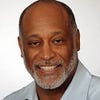Poll: Hillary Clinton Most Likely Candidate To Protect US From A Cyberattack
Among the long list of presidential candidates, Clinton emerges as a leader on cybersecurity issues in a poll conducted by Wakefield Research -- even though cybersecurity hasn't been front-burner in any of the candidates' campaigns thus far.

The controversy surrounding Hillary Clinton's use of a private email server for State Department business hasn’t damaged her image in some voters' eyes: In fact, it might have strengthened her credentials as a cyber-chief who will deal with the nation's cyber adversaries.
Forty-two percent of registered voters think the former Secretary of State is the presidential candidate most qualified to protect the United States from cyberattacks, according to a poll conducted by Wakefield Research on behalf of data security company PKWARE.
Clinton also emerged as the leader on cybersecurity issues among the millennial generation. Within this influential demographic, 47 percent of registered millennials say Clinton is the presidential candidate most qualified to protect the U.S. from cyberattacks.
Clinton is followed by Donald Trump (24 percent), Scott Walker (18 percent), and Jeb Bush (15 percent).
The Wakefield study examined American perceptions of the threat of political hacking, and which of the leading U.S. presidential candidates are most qualified to protect the nation from a growing onslaught of cybercrime.
Sixty-four percent of the 1,000 registered U.S. voters surveyed online in August think it is likely that a 2016 presidential campaign will be hacked. This finding is interesting because none of the candidates are addressing cybersecurity in a significant way, says V. Miller Newton, CEO and president of PKWARE.
"If 64 percent of the American voters [surveyed] predicted a campaign will be hacked, why isn't [cybersecurity] taking a center stage in the candidates' campaigns?" he says. Over the last 18 months, there have been security breaches of epic proportions, he says.
The biggest one reported this year is the attack on The U.S. Office of Personnel Management, victim of a major hacking campaign that impacted more than 22 million people inside and outside government who had their personal information stolen -- a number five times larger than what OPM initially reported.
At the same, the government says trust it with your personal communications, but there isn't a branch in the government that hasn't been hacked, Newton notes.
Financial institutions, movie conglomerates, retailers, and even medical insurers, also have been hit hard over the past few years, as attackers have gained access to troves of personal data. A recently discovered attack on Excellus Blue Cross Blue Shield and its parent company Lifetime Healthcare Companies may have exposed more than 10 million patient records.
Other highlights of the Wakefield survey include:
23 percent of the respondents don't know what encryption is or used for, which shows how the technology is misunderstood, Newton says;
Only 40 percent of the respondents are using encryption to protect files;
56 percent of the registered voters would be willing to allow the government to search their email, Internet browser history, phone calls, and text messages, if it meant protecting the U.S. from a terrorist attack;
51 percent of respondents think China has the best hackers, followed by the United States (30 percent), Russia (13 percent), and North Korea (7 percent).
Wakefield Research conducted the survey for PKWARE between August 10-14 among 1,000 registered U.S. voters, using an email invitation and an online survey.
About the Author
You May Also Like




